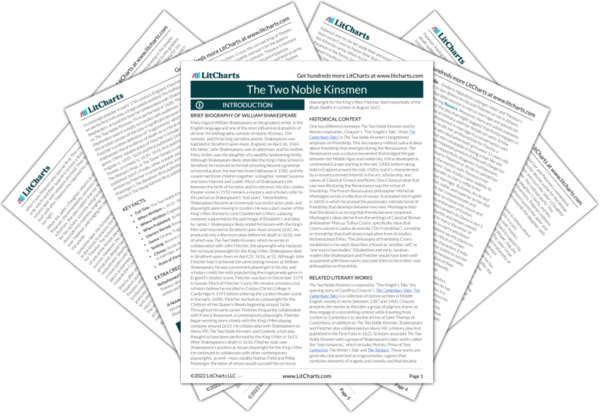The Queens praise Theseus as “Equal with Mars,” or godlike, for agreeing to help them, but Theseus counters this with the explanation that “being sensually subdued, / We lose our human title.” What this means is that if humans allow themselves to be “sensually subdued,” or unaffected by the suffering of others, they “lose [their] human title,” or give up their humanity. In other words, helping the women is humane—not the godlike thing to do. Theseus isn’t so much a god as a noble, virtuous human who concerns himself with the suffering of others.
